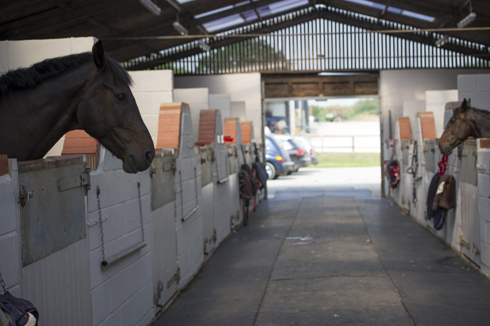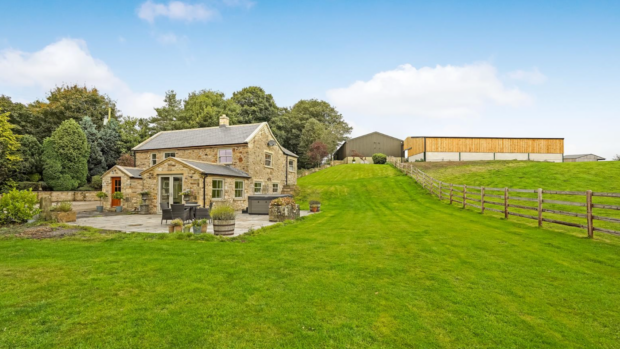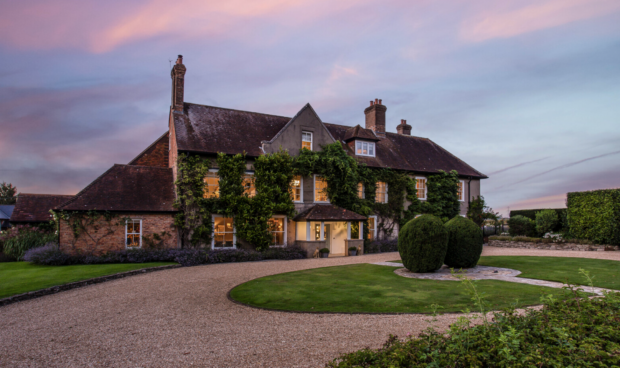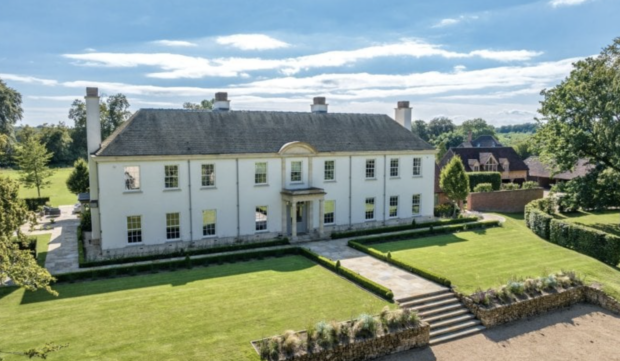H&H's equestrian property expert Carla Passion has some great advice for anyone considering buying their first home 'with room for a pony'
Little beats the joy of having your horses around you all day every day. Unfortunately, a chronic shortage of affordable equestrian properties for sale often puts people off from pursuing the dream of buying their own yard. However, say agents, taking your first step up the equestrian property ladder can be easier than it may seem, so long as you keep your eyes (and mind) open to opportunity.
1. Establish your budget
Your obvious starting point should be to establish what your budget is and what it can buy you. “Educate yourself on the market via the Internet for asking prices and via the Land Registry website for achieved prices,” says Diana Andrews of Churchill Country & Equestrian. “Dream properties won’t exist in a starter price bracket, so do be realistic.”
2. Know your criteria
Draw up a list of what you must absolutely have in your yard and what you are willing to compromise on, says Louise Elliot of Savills. This is purely down to individual preferences — What is it that bothers you most? What is it that you can’t live without? — although property values in your area may play a part in determining how flexible you’ll need to be.
3. Decide on location
Many agents recommend you don’t compromise on location, as it’s the one factor you can’t change in a property after you have bought it. So in an ideal world, you should look for house with good outriding and, if you compete, easy access to the motorway network. In practice, however, you may not be able to afford this kind of property, particularly if you live in the expensive, very densely populated south east of England. “If you have to box up to ride out once or twice a week, but this allows you to have your horses at home, that might be a compromise worth making,” says Diana.
4. Consider something ‘ready made’
Purchasing a ‘ready-made’ yard is usually preferable for a novice equestrian home owner because it means you and your horses can move straight in without extra any hassle — or cost, although the initial outlay will be more.
5. Be flexible
It may be easier to find a property for sale where you have to add some of the facilities. “A good starter home may well not have the stables or school in place, but field shelters or stables on skids can be put up reasonably cheaply and quickly [subject to the correct permissions],” says Diana. “As long as you have paddock land, then you have an equestrian home.”
6. Look for good grazing
Most agents agree that you should always buy as much land as you can afford. However, don’t feel you absolutely must buy an entire estate: “be practical as to how much you need,” urges Diana. The BHS says that one to 1 1/2 acres of permanent grazing will support a horse and 2 1/2 acres will support 2 horses if you manage your pasture properly. Look for fields that are easy to split into smaller paddocks and turnout areas so you can rotate your grazing. Depending on where you buy, you may be able to purchase an extra acre or 2 at a later stage.
7. Be prepared to compromise on the house
The one element you should always feel comfortable compromising on is the house itself, as you can improve it later. “Often, a 2-bedroom bungalow is overlooked by buyers, but these can be real gems,” says Zoe. “You can expand into the roof space and redevelop the property when the purse strings allow.”
8. Register with a number of agents
You should “register with all national and local agents and don’t rely on property websites alone, as you may miss the perfect home,” advises Rupert Sturgis of Knight Frank. This is particularly true during the traditionally quieter season of late autumn and early winter, when many properties are withdrawn from the market in view of a spring relaunch — but vendors may be yet be open to offers.
9. Get in a strong position to buy
Because starter homes can be rare to come by, it pays off to get yourself in a strong buying position. This means putting your current home on the market, if you are selling to buy elsewhere, and moving early on the financing front so you can obtain a mortgage offer in principle. “Is your funding in place? Have you instructed a solicitor? All this will help show an agent and a vendor that you are a committed and genuine buyer that will not pull out at the last minute,” explains Louise. “In the current market, showing that you are reliable can put you ahead of a higher bidder.”
Take a look at the 6 reasons you should buy an equestrian property in the winter




